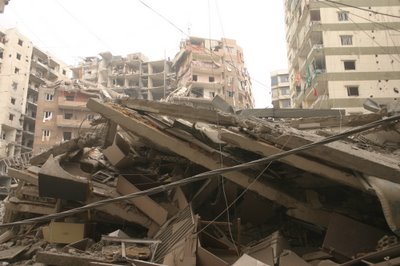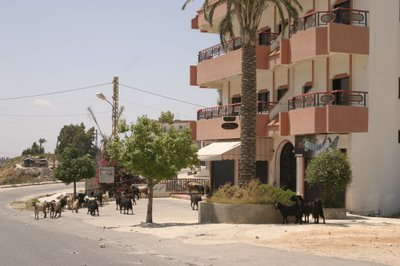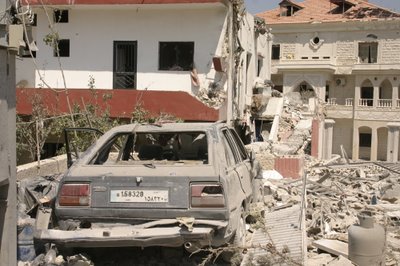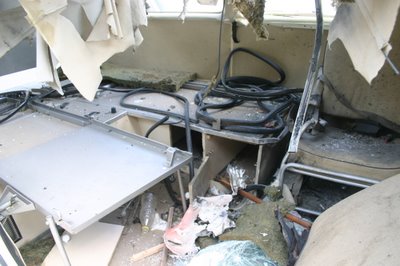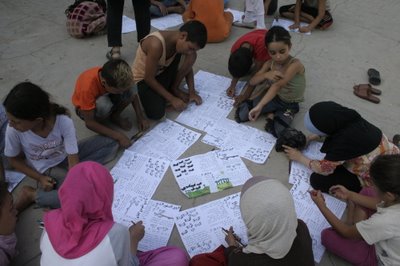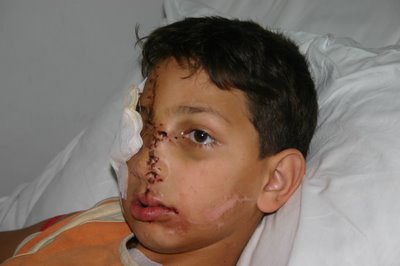Urban Hamid
Saturday, January 12, 2013
Finally, I can get rid of the beard from Syria.
This is one thing that I like in the Muslim world, they still use straight razors. It is so relaxing and soothing to be shaved in this way.
Selim, who is sixy years old and has been working as a barber for 35 years is very skilled.His hands did not shake once, not even when some kids threw some fire-crackers in front of his shop.
Thanks to his skilled hands he has been able to put four children through school, they have all gone to unversity. He himself has no education, except the one he has got from life itself.
Selim like so many other Turks in Antakya speaks a wonderful Arabic, sometimes mixed in with some Turkish words here and there.
He did not stress; sometimes he stopped to say something or to show me something on the TV that was tuned into BBC in Turkish all the time. After the shave and the haircut he went out to buy some tea that he brewed himself and served the loveliest tea.
Is it so difficult to understand why I love being here? I think we have lost so much in the West. Here everything is about making money and stressing, so we have no time for each other.
I had an equally wonderful experience in Reyhanli , where I was invited to a Turkish home for a lovely dinner. This was by mr. Kadir who runs a small corner store. Everything is not about money. It is about carpe diem! So I leave the region filled with images and experiences of war, but also the kindness of all the poeple I have . Last but not least, thank you xxxxx who took me into Syria and so patienly waited while I was interviewing refugees.
This was written in Antakya on Januray 3rd as I was leaving the area having been to Syria twice to report.
Tuesday, May 24, 2011
Reportage från Libyen på Konflikt lördagen den 21 maj. 2011
http://sverigesradio.se/sida/artikel.aspx?programid=1300&artikel=4513239&play=3105757&playtype=SändningSaturday, September 23, 2006
Lebanon
Article about traumatized kids published in International Press Services.Children Begin To Unlearn
Some Lessons
By Urban Hamid
05 July, 2006
Inter Press Service
BEIRUT, Aug 5 (IPS) - "Rockets landed on our house and destroyed it totally, so many people were injured," says nine-year-old Issara. Her two brothers, four-year-old Hussein and five-year-old Mahmoud, listen carefully. So does Ola Attaya, 31, a psychologist heading a pilot project to help traumatised children.
In a bit Ola gets up and gives Issara a hug. "It is okay, it is okay, you don't have to be afraid now. You're safe."
The two little boys have been mostly quiet since their family fled Ramieh, close to the border between Israel and Lebanon.
"As you can see, some of these children are not able to speak or communicate," Ola told IPS at the centre for refugees at the Beirut American University. "We feel that we can help them by giving them a chance to play, and speak to us whenever they want."
Ola manages the project put together by volunteers and spread now across six schools turned refugee centres. Ola and her team are working with hundreds of children daily to help them out of the trauma of the bombing.
Her staff of 40 includes psychologists, teachers, animators, artists and art students. They set up all sorts of activities with the children, like drawing, playing, theatre and reading, mostly in groups. And many children have recovered quickly enough.
"Early prevention is very important," Ola said. "If you do not deal with the trauma right away, it will grow more serious."
Her team encounters many symptoms of trauma among children: sleep disorders, nightmares, clinging to parents, difficulties in speaking, apathy, getting exceptionally animated, or developing headache or stomach ache.
Nevertheless, at Ola's centre it looked like school as usual. One group of children sat drawing, another painting, and yet another writing. One group of ten children sat listening to a teacher reading a fairy tale.
The children all sat on a cement floor, their eyes focused on the pictures in the book. A couple of boys ran around, getting up to pranks with some of the other children.
Most families at her centre have come from the south, where children have seen bombings, and people being killed and mutilated. And they have seen the trauma of their parents.
"Children are like sponges and absorb their parents' anxieties and fears," Ola said. "So therefore it is essential to help the parents in parallel with the children."
Some volunteers help parents while others work with the groups of children. "Stories encourage children to draw and to write about their experiences and eventually talk about them," said Ola. "This is necessary for them to cope with their experiences."
But the children are seeing pictures also of destruction, and listening to stories also of death.
Two girls around 12 or 13 stood looking at the photographs of two young men glued on to the rear window of a black car. "This is my brother," said one of them wearing a black headscarf. "He was killed by the Israelis a few days ago when they bombed our village. I loved him so much."
Ola and her team are preparing to take on more children as the Israeli army expands its ground offensive, and as air attacks draw nearer and nearer Beirut.
Some children are taking to new drawings. "They are making postcards that we want to send to Israeli children," said Ola.
Other articles from and about Lebanon:
The violent bombings of Lebanon have forced thousands of families to flee from their homes---some people were able to bring just a plastic bag with some clothes and had to leave the rest behind. According to the Lebanese authorities one million people are displaced and living wherever they can find shelter.
Many of the families have come to find shelter in Beirut, thinking that is safer here. So all the schools and many public areas are providing them with a temporary place to stay.
The sound of laughter, voices of playing children, such a normal phenomenon, except here in war-torn Lebanon. The sound was coming from the temporary refugee-camp in the Sanayeh Garden, where hundreds of refugees were staying.
In the middle of the park there was a fountain, all the water was gone, leaving just a bare cemented floor. Around 30 children were all seated on the rough cement. In the middle of the crowd was Ruweida, walking back and forth, encouraging them to color a story in a coloring book.
Ruweida told us that the children get to study for an hour a day:
”Of course this is not enough but it offers some kind of distraction from their problems. Today there are reading a story about a bird that had to run away from its nest. Like the children,” she added.
Tahani Kassam, nine years old gave her sister Amal, six years old, a hug. They have escaped from Ouzai outside Beirut.
” I am happy now because I do not have to be afraid of being bombed. And here we are able to go to school,” told Tahani.
Next to the two sisters are, Warda and Khalil, eight and five years old, from Naame. They are siblings. Khalil has only one crayon and is desperate to get another one in order to be able to finish coloring. A little girl heads toward him and lends him a couple of crayons so that he can finish his project.
” You have to return them because I need them,” she told him.
This is all organized on a voluntary basis, the resources are scarce, so they have to share everything with each other.
” I am so happy that we can go to school again,” Warda said, while she was helping her brother to color something that was a little bit too complicated for him.
While the children are having fun and able to forget the hardship and the bombing and horrible things they have seen, some explosions are heard from the direction of Dhaia Al-Jenoubia, the Beirut-suburb that has been bombed throughout the conflict. According to the Israelis this i a Hizballah-stronghold.
The scale of the human crisis cannot yet be appreciated. One thing that is obvious is that the children are the ones that suffer the most from this conflict. Many might have lost their parents, or the parents having lost everything might not be able to care for their children. Some families might face social and economic problems that sometimes break them up and many times end up in divorces.
Around 15 kilometers north of Saida is a small town, Sferai, situated up in the mountains surrounded by gren and lush valleys. The climate up here is very pleasant. A light breeze went trhough the village. Here is the SOS Children's Village located, built precisely to meet this abovementioned need for children. Here some 80 Lebanese children from the age of infants to 15 years old live. Some of them are orphans, others come from dysfunctional families, where some of the children have been exposed to abuse and drugs. In same cases the parents were not able to take care of their kids due to unemployment and had to give them up.
Joseph Soueidy, who has been the director of this village since 1992 looked with compassion at Dina Jeradi, 5 years old, as she walked around and said hi to her visitors. She uttered a few words and smiled.
” When she first came she was not able to do anything. She had no social skills and she had fallen behind her peers by a couple of years. But now she is getting special help twice per week, the director explained.
Her story is very sad. Her mother, unemployed and not very stable mentally, had not been able to take care of her daughter, so she sent her away. Dina had even been abused it turned out and had been afraid of people and not able to interact with other kids.
Now she lives with nine other children in a house. This is also the concept that they are supposed to live like a normal family. They have a ’mother’ who also lives with them. They go to school in the village and come home and eat at home like ordinary children. Looking at Dina it seems as it is working.
All of sudden some explosions are heard---the children became quiet and sort of froze for a few seconds.
Joseph broke the silence:
” Our children’s village has been in the cross-fire in previous conflicts. But so far we have been able to pull through. Our village only has nine buildings for now. But if this conflict continues we might have to ad a few buildings in order to take care of an increasing number of orphans”, he concludes.
Urban Hamid, Beirut.
” We cannot survive for a long time, there will be no work, no gas, no electricity, and later on no food, said Mahmoud a taxi driver in his late 60s . What would people do then – eat each other?”
The taxi driver is not able to suppress his anger and frustration. Understandably so, he has waited in line for almost five hours to fill up his car with gas, from 4:30 in the morning. Ten measly liters was his reward! Ten liters for a taxi, with the traffic that prevails in Beirut nowadays this quantity will not last long.
As of last week finding gas has become a wild-geese-hunt.
Many gas-stations have simply not been open, and those that wore open have only been selling 10 liters to each customer. The need for gas has increased tremendously as the lack of electricity is forcing, shops, restaurants, hotels, offices, hospitals, and of course regular homes to use generators that consume gas, lots of gas. The city is excruciating hot, around 33 degrees Celsius and very humid. So people are stuck between a rock and hard place. They simply cannot afford using their air-conditions. Those lucky enough to have these kind of devices, that is. Shop owners turn off the lights in their shops in order to save energy.
Grocery stores are struggling to find enough gas to make sure that they are able to keep their freezers and refrigerators going. Meet, milk and other perishable items would go bad in no time if their cooling devices failed.
Cab drivers apologize and warn their customers that they have to charge them more now that there is such a lack of gas. In the same breath they warn them that they do not know whether they have enough gas or not, so they better be prepared that they might run out of gas.
Very often one finds fancy, BMW’s, sports cars and lyxury sedans, alongside less fancy cars, parked in the middle of the road, causing traffic jams--- their owners trying to flag down a car, or desperately calling on their mobiles to get some gas.
Gas stations are also causing traffic jams. Like snakes slowly but surely creeping forward, the cars wind around a couple of blocks. Inside the vehicles one sees people sweating profusely in the heat, some nervously smoking, others listening attentivly to the news on their radios.
” We can only give them 10 liters of gas. We have no more. Some of the drivers yell and are angry. But I cannot do anything about it. It is the war”, said, Ahmed, gas station attendant in the Bourg Haidar-district as he was filling up a Toyota-truck.
An old lady dressed in a black skirt and a white blouse, was clenching her fist as she was yelling at a policeman.
” Why are you allowing some people cut in line? Are they paying you? You should be ashamed of yourself, she yelled, her face was red.
Joseph Toutikian in a red Nissan, was smoking a Gauloise, while waiting for his turn.
” I have waited for about 15 minutes. My car is almost empty. Ten liters in better than nothing. But it will only last me a couple of days. I guess then I have to walk”, he concluded.
Many people who live far away from work are not able to get to work, either due to lack of fuel or due to roads being destroyed or out of fear from being attacked by the Israelis. Makassad Hospital in Tariq El Jedide does what it can to keep it running in spite of the lack of fuel. The general hospital has 225 beds but finds it more and more difficult to run its facilities due to an increase of patients. The number of patients has gone up from 80 a day to between 110 and 130. At the same time many of the hospitals employees have difficulties in coming to work, either due to lack of transportation or because their roads have been cut off by Israeli attacks. So the management has provided beds so that some nurses have a place to sleep.
” We depend entirely on backup electricity from generators” explained Mohammad Firikh, the hospital director at Makassad Hospital. ”We are able to run the hospital at the current level for 10-14 days that’s it.”
In order to make sure that the doctors will be able to get to work the hospital has to buy gas for them. The government has set up a system to ensure that the health sector is supplied first, but it is not enough.
” We have to negotiate directly with our suppliers, and now they demand that we pay them in cash , mr. Firikh pointed out. ” These are not bad suppliers. It is only that they are taking risks. The Israelis are targeting tankers. The roads have been cut off. They are not covered by insurance.”
Urban Hamid. Beirut.
Interview with sheik Abdel Amir Kabalan, the president of the Supreme Shiite Islamic Council in Lebanon.
1-How big is the Shiite community today in Lebanon?
The Shiite community today represents more than thirty percent of the Lebanese community, and they are the active nerves of this country and it’s spinal column, and without the Shiite community and the other religions there is no identity to Lebanon, because what distinguishes Lebanon is that it has a qualitative variety of religions and they all agree on building a united Lebanese community.
2-Where are they mainly located?
The Shiite community is mostly available in the south, in the Bekaa-valley (east of Lebanon), in suburb of Beirut and in Beirut and in various locations in Lebanon and also in Jbeil (north of Lebanon).
3-Is the Shiite community bound to support Hezbollah?
The truth is that during these circumstances, all the Lebanese community or let’s says the majority is supporting Hezbollah because Hezbollah is not working from the standpoint of a sectarian but its target is to protect Lebanon and defend her international borders.
4-How does the council regard Hezbollah and does it consider it a terrorist organization?
The Shiite council embodies ministers, high rank employees, and religious men, this council has ministers from Hezbollah, Amal [(hope) Nabih Berree’s movement] and independent ministers. The Shiite council sponsors all the Shiite community. The resistance is not a terrorist movement as they claim it is defending the Lebanese territory.
5-Is Hizballah to be blamed for the Israeli attack?
The truth is that kidnapping the two soldiers is not an excuse for Israel to burn the country and to hit its foundations, bridges and all its facilities, or to destroy a country from south to east to north, its capital and the suburbs of the capital. Israel could have managed the kidnapping issue in a diplomatic way as it used to, before when there was kidnapping from both sides. In fact chasing out Hezbollah was not accomplished as they claim but it only targeted peaceful Lebanese civilians, the bridges in the Lebanese republic, the houses and villages. The kidnapping issue is not an excuse for Israel to destroy a country, kill its citizens and hit its infrastructure. Israel is an aggressor, unjust and criminal.
6- Hizballah launched Katyousha rockets on Israeli civilians. So this gave Israel the right to retaliate, does it not?
Why don’t we reverse the question? The massacres that took place in Qana, Marwahin, Ghaziyeh and Shayyah (in the suburb of Beirut). This type of killing is the worst method that targets displaced civilians and who would believe that they would bomb civilians while they were burying the martyrs in Ghaziyeh with no respect to the dead and no consideration to the people in that burial. What excuse do they have to target ambulances and civilians in different villages?
7- How do you view suicide-bombers who attack women and children in Israel?
The martyrdom operations that are targeting Israelis are not directed on women, children and civilians but toward the Israeli military forces that threat our security and invade our land.
8- Do you think that it is moral to kidnap Israeli soldiers?
There are Arabs and Lebanese hostages in Israel and there are Israeli bodies and hostages in Lebanon. Israel’s concern is to destroy Hezbollah and it was waiting for the right time to destroy the Lebanese infrastructure. Israel took the kidnapping issue as an excuse while it could have been resolved in diplomatic means.
9- Do you think that Hezbollah should be disarmed?
We agree with the seven points that the Lebanese government proposed, and we are with the decision of sending the Lebanese army to the south borders, but before all that we need to achieve cease-fire then retreat the Israelis troops out from the south to behind the borders and the return of displaced persons. Later on, all the other issues can be discussed internally with the different parties on a round table led by President Nabih Berree.
11- Aren’t the Israelis suffering too?
Who doesn’t want to be hurt should not hurt in the beginning, I don’t think that they are suffering more than our civilians. Is it right for them that our children are killed and their children are safe, even when we are not targeting their women and children?
12- Do you accept Israelis in the south?
The land is our land and we are the one to decide, Israel is not our guardian, Israel has no right to say anything or to make decisions because it is our enemy and the enemy’s proposals and decisions are rejected. Israel has to retreat to occupied Palestine and then we make our decisions. The Lebanese government decision about sending fifteen thousand Lebanese soldiers to the border, we think that this is what is best for both parties.
14- What is the council’s relationship to Iran? Syria?
The Syrians are our friends and what links us to Iran is that we agree on the same religious beliefs and that we are sheik Jaafar’s followers in belief.
15- Does the council work towards a cohabitation between Muslims and Christians?
The Muslim Christian cohabitation is a patriotic must. We are the Christians’ brothers, friends and relatives and we share the same fate and for these reasons we have to support the national unity because this unity is the only salvation for this country. This union is the major force against our Israeli enemy.
16- What is the council doing to help the internal refugees in Lebanon?
In fact, the government, throug the relief committee is distributing the aid that is received from donators, our role is to help in our means, to help on the ground those displaced people who have their dignity and we should not allow insulting these people who lost their houses and everything they owned in their villages, so I say we should respect these people’s feelings and share with them food and anything we can share because they are our relatives and friends, we share their worries and their fate is our fate.
17- Will Lebanon be able to recuperate from this war?
When this crisis is over, because the main danger is Israel, and when the Palestinians get back to their lands and when Israel leaves Sheb’a Farms and Kfarshouba hills, only at that time will Lebanon be able to rebuild itself and the donor countries should sponsor this resilience and the Arab countries should be proud of Lebanon’s achievement and be proud of its resistance who stood against Israel’s arrogance and its advanced weapons.
18- Could this lead to a civil war and how could this be prevented?
There is no place for a civil war between us and all the Lebanese agreed on this point and they will not slide under this sedition. Our only enemy is Israel and we have to be united as a solid rock to fight this enemy.
19- Will investors come back to Lebanon?
The investors cannot leave Lebanon, Lebanon has a charisma that attracts people. Its nature, sea and mountains attract people. For sure they will be back.
20- Can Israel and Lebanon live in peace?
This matter has to wait for the moment when the Palestinians get their rights and land back, in a republic were Al Quds (Jerusalem) is the capital, and the return of the displaced to their land. When we achieve this, Lebanon will be safe from any Israeli threats.
21- What is Israel trying to accomplish?
Israel under American sponsorship wants to destroy all the parties that might hit its interests or the Americans interests. Israel is involved in this because of America. America was involved in Iraq and wants Israel to be involved in Lebanon to take from both countries what they had as treasures. For that reason Israel insists to hit Hezbollah and Hamas but this cannot be achieved because Hezbollah is supported by the Lebanese. We say to Israel, stop what you are doing before you fall in what you caused for others.
22- Sayyid Nasrallah threatened to launch missiles on Tel Aviv- is this not terrorism targeting women and children?
“A tooth for a tooth, an eye for an eye, and who starts is not fair.
Urban Hamid, Beirut
Lebanon
A picture says more than a 1000 words it has been said. However when it comes to the destruction of Lebanon, words are needed to give a voice to the one million or so refugees and the over 1000 Lebanese people, most of which, were civilians, who died from the Israeli ruthless and indiscriminate bombings of residential areas, and attacks on roads and bridges.To write about this is so much more urgent, in light of the fact that the whole world was watching and said nothing, as the Israeli aggression against the Lebanese people continued for over a month. Therefore I have added some words and explanations to my pictures.
Starting from the top:
The southern suburbs of Beirut, Dhahiya Jenoubieh, where thousands of people lived and worked have been destroyed and turned into mounds of rubble and debris. The Israeli rationale behinds, so cynical in its notion and so ruthless in its execution --- this was an area where Hizballah was hiding. (July 26th 2006, Beirut). The other picture show more of the destruction of Dhahiya ( July 26th 2006, Beirut)
(The picture in between the two)
Hussein Khazam and his wife, Hossnyeh Fares, walked 40 kilometers from their home in the south to Beirut in order to escape the Israeli bombardemnt. Now they are staying in the Sanayeh park, sleeping on mattresses on the ground without a roof over their heads. The walked for two days to get to Beirut.
Much of the Lebanese infrastucture was damaged during the war. According to estimates some 80 bridges were destroyed. This one is very close to the Lebanese capital ( July 31st 2006, Lebanon).
Many cities have been levelled to the ground and have turned into ghost towns. The inhabitants were only able to bring some of their belongins and had to leave their animals behind for them to fend for themselves ( Ghost town in the south of Lebanon, July 31st 2006).
The massacre in Qana took place on July 30th, when Israeli airplanes attacked the village and killed 28 people (13 are still missing). Many of the people were children --- they had all taken refuge in a shelter that collapsed and burried the people alive. Some of the houses (Qana, July 31st 2006).
The two pictures below the picture from Qana were taken at the Lebanese Red Cross- center in Tyre and shows an ambulance that was destroyed in an airstrike launched by the Israelis. Kassem Shaulan was badly injured --- they lost a couple of rescue workers in the attack. (Tyre, July 31st 2006).
The Lebanese children are the victims in this war. They have seen bombs falling over buildings and killed people in front of them. Some of them have even witnessed their loved ones being blown into pieces in front of them. They will live with their traumas for the rest of their lifes.
This boy was badly injured when the Israelis attacked a shelter in Tyre. They doctors were not able to save his right eye. His father was also badly injured during the attack. (Tyre, July 22nd 2006).
The rest of the pictures show traumatized children.
(Beirut, Saida, Sferai, July 2006).
Tuesday, September 19, 2006
Thursday, December 15, 2005
Elections again
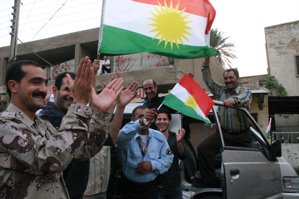
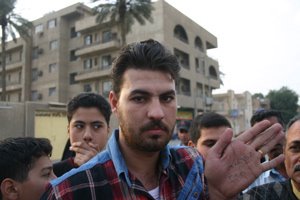

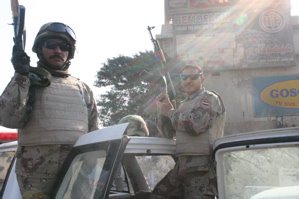
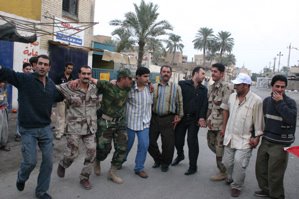
Under tight security---policemen, soldiers, tanks, trucks and other military vehicles on every street corner. It is election day in Iraq. !5 milion Iraqis are elliglble to vote for a parliament that will be deciding the fate of Iraq. Will it be able to save Iraq from an imminent civil war? Will it
Friday, November 18, 2005
Explosion in Baghdad

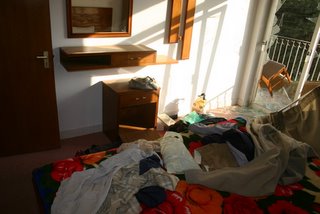

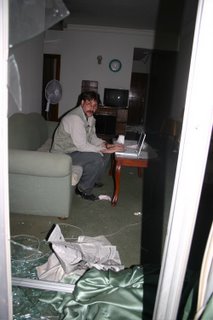
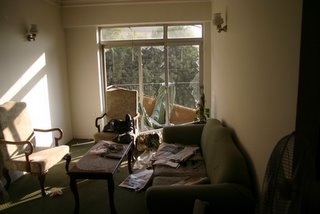
Two explosions ripped through an area in Jaderia in Baghdad. It occurred around 8 AM, Nov. 18th.
Their goal was probably the five hotels in the area, where many foreign journalists are staying.
The result was that 8 Iraqis were killed: children, women and men living in the surrounding apartment blocks. In addition 40 people were injured and their homes were in some cases totally destroyed. So they had to leave everything and find lodging with friends and family.
The government does not help, nor does the US army.
One woman, umm Muhammad, said that her family had lost everything. Their home had cost them 10000 dollars.
---Where are we going to live no? This is all Bush's fault she said, weeping.
Another resident said:
--- We have asked the security company to extend the safety barrier, so that our houses would be protected as well. But they refused and said that we were safe.
The resident clearly was right. Because the car bombs that exploded could not get through the barrier and exploded right in front of the apartment blocks. So they had to take all the impact. The hotels that all were inside the barrier, only sustained superficial damages, whereas the residential buildings sustained serious damages. In one case, a building collapsed and some of its residents were trapped beneath the rubble, and had to be dug out. This is were most of the people died!
However, I saw the rescuers carrying out one man whom they had been able to dig out from the underground.
Journalists who normally barely observe and write about these tragedies were for once able to experience it firsthand and perhaps able to empatize with the so badly afflicted Iraqi people.
Wednesday, November 16, 2005
They are ready, so ready!
Back in Baghdad after a relaxing and enjoyable couple of weeks with family in Basrah. It so easy to forget about the ongoing war and the hardships of every day here in Baghdad. Because the difference between Basrah and Baghdad is like night and day.Just a couple of hours after my arrival, I am confronted with the realities of Baghdad and the realities of being in a city that is under siege:
My driver (Amer) and I are driving through one of the hot-spots in Baghdad, Al-Adhamiya. The city is dark, apart from the lights of the cars and some shops that are still open.
Just before the college, there is a check point. The Iraqi National Guards that are manning it are busy pulling cars over and searching them. We are pulled over as well.
One of the soldiers asks for our id:s.
I am pulled out by the squad-leader: Where is your badge? Where is your badge, he asks ?
I start going through my bag, looking for it. The thing is when you are driving in Baghdad you do not want to be found with a press card issued by the Americans. So you hide it, and since I was coming from Basrah and was planning on just going straight to the hotel anyway. No need for my badge.
The soldier gets more agitated.
Three rounds are fired next to our car. People start running and yelling. I get nervous. Drop my stuff. Are we under attack? I look at Amer. His face is red. He is steaming.
I glance at the soldier standing outside our car, on the driver's side. On the soldier's finger is his kalashnikov doing a balancing-act as he is going through Amer's documents. The problem is that he has put his rifle barrel down and his finger on the trigger.
We could all have killed! These are the guys that the US has trained that are supposedly ready to establish law and order in Iraq! God have mercy upon us!
The squad leader runs over to the other side where the incident just happened.
--- Iraqi or Arab, he asks my driver?
--- Arab, he answers.
---You are Iraqi. You have an Iraqi passport. How can you say, Arab, the soldier yells ?
--- Are we not Arabs? Are we Iranians or something, Amer replies?
There is definitely an identity-crisis going on in Iraq right now.
What are Iraqis? Who is Iraqi? And where are they going?

